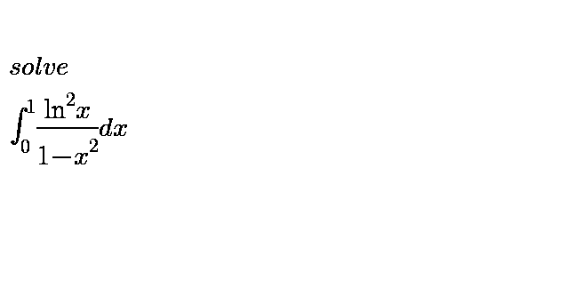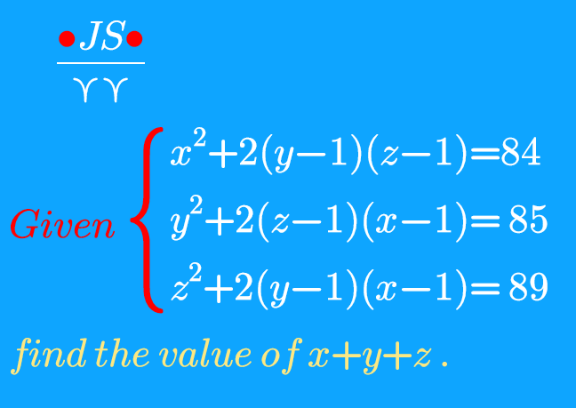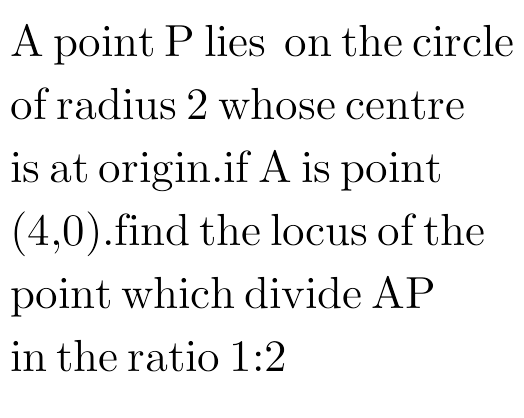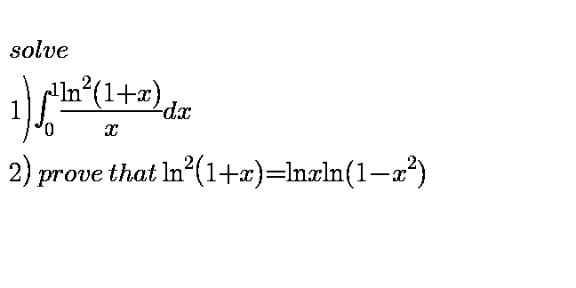
Question and Answers Forum
AllQuestion and Answers: Page 1034














Pg 1029 Pg 1030 Pg 1031 Pg 1032 Pg 1033 Pg 1034 Pg 1035 Pg 1036 Pg 1037 Pg 1038
|
Question and Answers Forum |
AllQuestion and Answers: Page 1034 |
| if all A,B be a set prove that( A^B = ∅↔A=∅ and B=∅) help me sir |

|

|

|

|

|

|

|

|

|

|
| x=cosθ, where ((3π)/2)<θ<2π, and that 2cosθ−sinθ=2, show that (√(1−x^2 ))=2(1−x). Hence or otherwise, find x and deduce that tan2θ=((24)/7) |

|
| f(x)+f(2x+y)+5xy = f(3x−y)+x^2 +1 for every x,y∈R . find f(10) |

|

|

|
| ((♭emath)/(•••••)) use cayley − hamilton theorem to calculate A^(−1) for A= (((1 2 2)),((1 2 −1)),((−1 1 4)) ) |
| ((…♭emATH…)/(≅≅≅≅≅≅)) (√(5+(√(10)))) = x.((√(5+(√(15)) )) +(√(5−(√(15)))) ) x =? |
| calculate I_n =∫_0 ^(2π) ((cos(nx))/(cosx +sinx))dx (n→natural) |
| let f(x) =((sin(αx))/(sinx)) , 2π periodi even developp f at fourier serie |
| calculate ∫_0 ^∞ ((arctan(2+2t^2 ))/(1+t^2 ))dt |
| find U_n =∫_0 ^1 sin(narctanx)dx |
| calculate ∫_0 ^1 ((ln(1+(√(1+x^2 ))))/(√(1+x^2 )))dx |
| calculateA_n = ∫_0 ^∞ (dx/((x^2 +n)(x^2 +2n))) with n integr natural≥1 |
| find nature of Σ_(n=0) ^∞ (((−1)^([x]) )/(2+cos(n[x]))) with [..] mean floor |
Pg 1029 Pg 1030 Pg 1031 Pg 1032 Pg 1033 Pg 1034 Pg 1035 Pg 1036 Pg 1037 Pg 1038 |